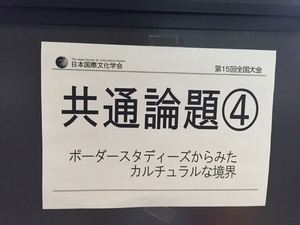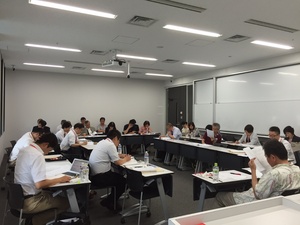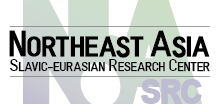Border Studies Panel at the Japan Society for Intercultural Studies
On July 17, 2016, the annual conference of the Japan Society for Intercultural Studies took place at Waseda University. Researchers from the Center for Asia-Pacific Future Studies (CAFS, Kyushu University), Eurasia Unit for Border Research (UBRJ, Hokkaido University) and the Association for Borderlands Studies Japan Chapter (ABSJ) held a panel on border studies entitled "Cultural Borders from the Perspective of Border Studies" at the conference.
The panel kicked off with Akihiro Iwashita's introduction to the panel and explanation of how culture is often "neglected" in border studies literature. He explored the possibility of examining cultural borders through the notion of political culture, based on the dichotomies of individualism vs. collectivism and dictatorship vs. democracy. Building upon this framework, the remainder of the panel saw Fuminori Kawakubo (Chuo Gakuin University) look to the US as a case study while Naomi Chi (Hokkaido University) examined Canada, Yasunori Hanamatsu (Kyushu University) looked at Japan and Korea, and Takayasu Suzuki (Yamaguchi Prefectural University) examined Buddhism in India.
More specifically, Fuminori Kawakubo examined border culture and the process of securitization along the U.S. Canada border from a constructivist perspective. Naomi Chi criticized the "essentialist" view of political culture and emphasized that when it comes to immigration or migration policy, these dichotomies do not offer much insight. Yasunori Hanamatsu explored the idea of "expected unfamiliarity" between Japan and Korea through border tourism on the island of Tsushima and how the notion of cultural borders can be approached in this light. Finally, Takayasu Suzuki offered an interesting insight into religion and the caste system in India, and set out how prejudicial border functions could be overcome by "re-examining" the process through which Buddhism has been distorted in the past.
Over 40 people attended the session, which is a fair indicator that cultural borders and cultures at borders need to be examined in more detail. Thanks to the panel members for a great session and more to come! (Written by: Naomi Chi)



 Eurasia Unit for Border Research (Japan)
Eurasia Unit for Border Research (Japan)




